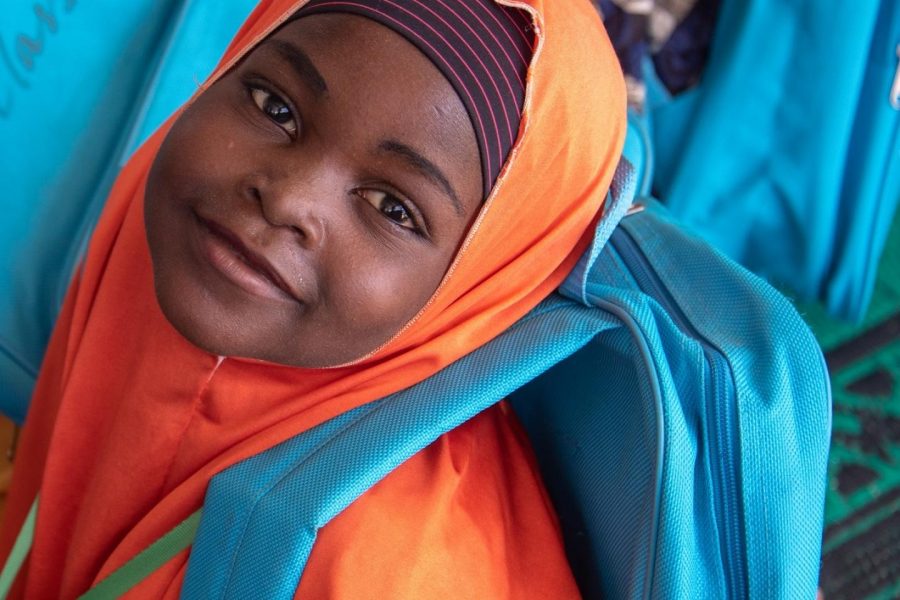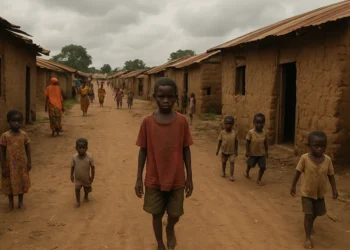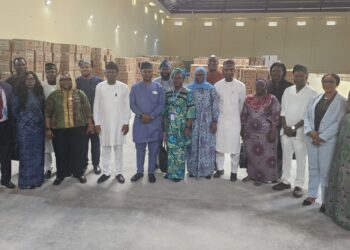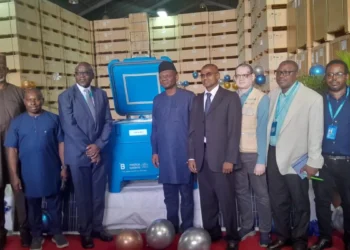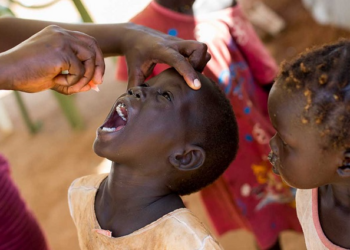Education Cannot Wait (ECW) has announced US$20.1 million in catalytic investment grants to accelerate the response to the protracted crisis in northeast Nigeria.
According to ECW, this is in reaction to the armed conflict and escalating humanitarian crisis in northeast Nigeria, that has left over 1 million girls and boys in need of educational support.
Three-year education programme for the protracted crisis in northeast Nigeria aims to reach 2.9 million children and youth in response to armed conflict and ongoing humanitarian needs.
READ: Buhari gives reason for silence on Lekki Tollgate shooting
According to the organisation, the initial programme will run for three years, with the goal of leveraging an additional US$98.7 million in co-financing from national and global partners, the private sector and philanthropic foundations, to reach over 2.9 million children and youth.
The number of children and youth with chronic needs in education remains high across the three states targeted through the Education Cannot Wait investment.
READ: Desmond Elliot apologises for addressing the youths as “Children”
Implementing in partnership with the Government of Nigeria by UNICEF, Save the Children, and a consortium between the Norwegian Refugee Council and Street Child:
- The overall multi-year resilience programme targets 2.9 million children and adolescents from 2021 to 2023.
- Half of the targeted beneficiaries are displaced children and youth, while the other half live in host communities that are affected by conflict.
READ: NITDA digital centre will upgrade Nigeria’s cyber security – Pantami
The programme builds on the success of the Education Cannot Wait funded ‘first emergency response’ in northeast Nigeria that reached 290,000 children. Education Cannot Wait seed funding will initiate the implementation of the programme by focusing on reaching:
- Girls and boys in the states of Borno, Adamawa and Yobe. In total, over 482,000 girls and boys will access learning opportunities, of whom over 60% are girls and adolescent girls.
- The programme also targets 48,000 girls and boys in early learning programmes, 380,000 at primary level and some 50,000 at the secondary level, in both formal and non-formal educational settings.
READ: Resources mobilisation critical to Africa’s recovery from Covid-19 – Adesina
Among its various outputs, the programme will build and renovate classrooms and learning spaces, support stipends for teachers and increase continuity by working with local partners to keep children and youth in school.
It will also ensure educators have the training and tools they need to build gender-responsive learning plans, and safe and protective learning environments that respond to the specific needs of girls, children with disabilities and crisis-affected children in need of psychosocial support.
READ: Gov. Makinde presents N266 billion budget to Oyo State House of Assembly
What they are saying
Dr. Shettima Bukar Kullima, Executive Chairman, Borno State Universal Basic Education Board Nigeria, stated that:
- “Education Cannot Wait has been supporting the education in emergencies response in Nigeria since 2018 through the First Emergency Response intervention. During the COVID-19 pandemic, ECW was the first donor to offer support to conflict-affected North East Nigeria. Once more, ECW is supporting Nigeria in the advancement of education in emergencies through the multi-year resilience programme. This is highly commendable, and a much-appreciated endeavour.”
Yasmine Sherif, Director of Education Cannot Wait said:
- “Children and teachers are being targeted in violent attacks. Killings, rape and other forms of sexual violence, abduction and child recruitment are putting girls and boys at extreme risk. Education is not only every child’s right, but the protection it provides is also all too often lifesaving. This new education in emergency response, which delivers across the humanitarian-development-peace nexus, helps sow the seeds of peace and tolerance, while also ensuring girls and boys have access to safe and protective learning environments.”
- “Nigeria is making progress in addressing the protracted crisis in the northeast of the country, but with limited resources and continued violence, progress has been uneven. There are still approximately 1 million children, including 583,000 girls, and 18,000 education personnel that are in rapid need of support to either resume or sustain education in northeast Nigeria. I call on public and private sector donors to urgently help close the $98.7 million funding gap for this crucial programme. There is no time to lose.”
What you should know
The programme objectives are:
- Continued delivery of strong education in emergencies programming.
- Mainstreaming of learners into formal education.
- Addressing key cross-cutting issues, with a special focus on gender, disability and mental health and psychosocial support.
- Strengthening educator and school leader capacities and motivation.
- Strengthening local leadership to take full ownership of delivery and transitions to formal education.
- Education Cannot Wait (ECW) is the first global fund dedicated to education in emergencies and protracted crises. ECW was established during the World Humanitarian Summit in 2016 by international humanitarian and development aid actors, along with public and private donors, to help reposition education as a priority on the humanitarian agenda, usher in a more collaborative approach among actors on the ground and foster additional funding to ensure that every crisis-affected child and young person is in school and learning.

